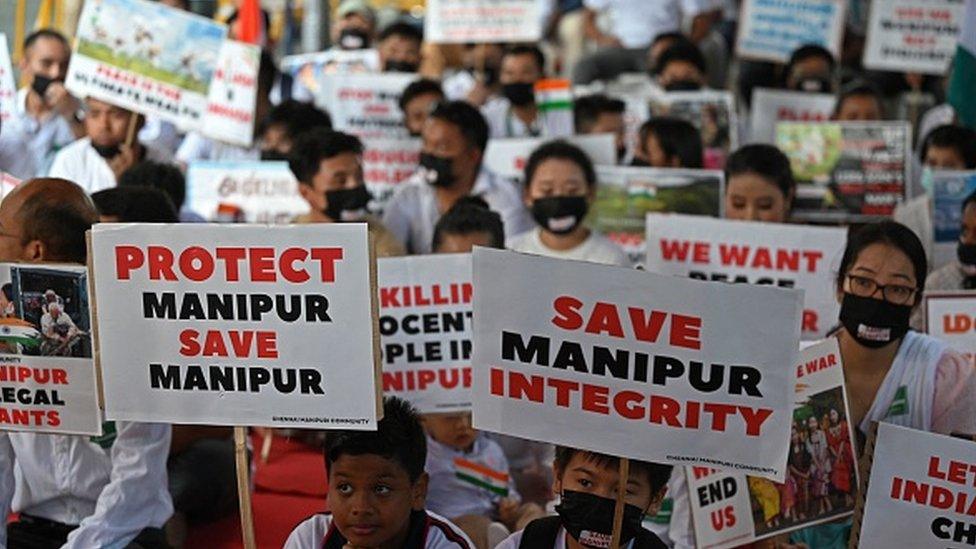Manipur violence: India condemns EU Parliament resolution on ethnic violence
- Published

More than 100 people have been killed and thousands displaced in the Manipur violence
India has condemned a European Parliament resolution on the ethnic clashes in Manipur state, calling it an "interference" in its internal affairs.
More than 130 people have been killed in the violence in the north-eastern state which broke out in May
Tens of thousands have been displaced because of the clashes and have been forced to live in temporary shelters.
The resolution called the violence a result of "divisive policies promoting Hindu majoritarianism".
It came as Indian PM Narendra Modi arrived in France on a two-day visit on Thursday. He was conferred with the Grand Cross of the Legion of Honour, France's highest civilian honour.
The resolution followed a discussion in the EU Parliament over the violence as part of its debate on breaches of human rights, democracy and the rule of law during its ongoing plenary session in Strasbourg, France.
On Thursday, India's foreign ministry responded to the resolution, saying, "such interference in India's internal affairs in unacceptable, and reflects a colonial mindset".
It said the EU Parliament should focus on its own internal issues.
Violence in Manipur began in May following protests by indigenous communities - primarily the Kukis - against the demand seeking tribal status for the Meiteis.
Since then people from both communities have attacked each other's homes, vehicles, churches and temples, officials say.
The clashes have resulted in complete segregation of the Kuki and Meitei communities in the state.
The resolution adopted by the European Parliament denounced " in the strongest terms nationalistic rhetoric deployed by leading members of the BJP party".
It also called on federal and Manipur state authorities to allow unhindered humanitarian aid to those effected, to allow independent monitors to carry out investigations and called on political leaders to stop making inflammatory statements to re-establish trust.
The parliament asked for the restoration of internet services in the region and the withdrawal of the Armed Forces Special Powers Act (Afspa), a controversial anti-insurgent law that has been criticised by right activists for decades.
Indian authorities have said they are taking all steps to ensure peace and maintain law and order in the state.
This is not the first time India has faced criticism from western institutions and activists. During Mr Modi's state visit to the US in June, some liberal democrats boycotted his speech to the Congress over what they said was India's poor human rights record.
BBC News India is now on YouTube. Click here, external to subscribe and watch our documentaries, explainers and features.

Read more India stories from the BBC:
